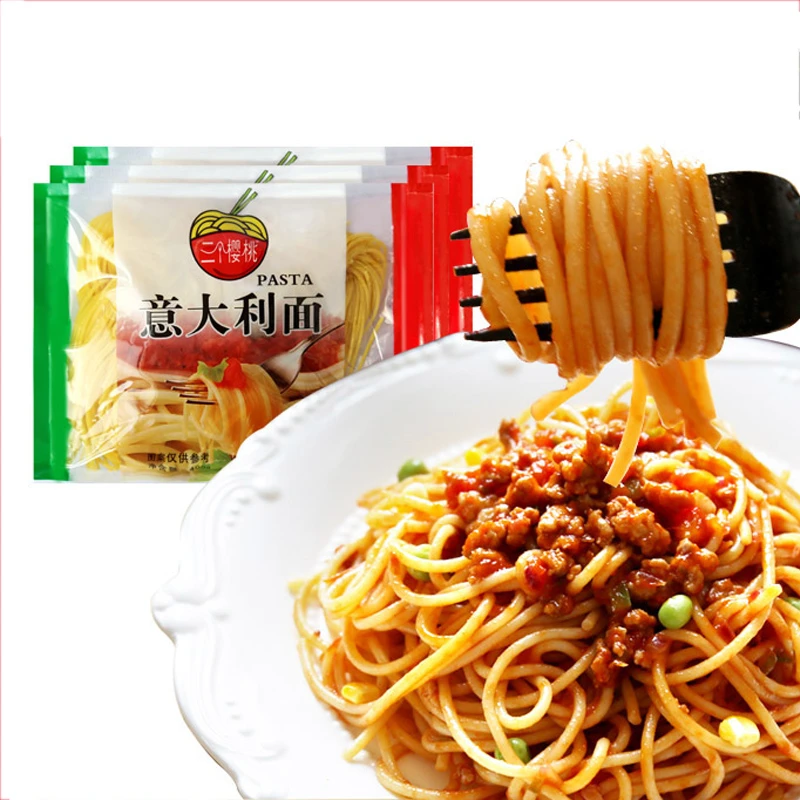A Comprehensive Guide to Various Types of Italian Pasta and Their Unique Characteristics
A Comprehensive Guide to All Italian Pasta Types
Italian cuisine is celebrated around the world, and at its heart lies pasta. This beloved staple comes in an incredible variety of shapes and sizes, each designed to pair perfectly with different sauces and ingredients. In this article, we will explore the many types of Italian pasta, delving into their unique characteristics and traditional uses.
1. Spaghetti
Perhaps the most famous pasta shape, spaghetti is a long, thin, cylindrical noodle. It's typically made from durum wheat semolina and water. Spaghetti is versatile and is famously paired with marinara sauce, pesto, or aglio e olio (garlic and oil).
2. Fettuccine
These flat, thick noodles are made from egg and flour. Fettuccine is best known for its role in the classic dish Fettuccine Alfredo, where heavy cream, butter, and Parmesan cheese create a luscious sauce.
3. Penne
Penne consists of short, tube-shaped pieces of pasta with diagonally cut ends. This shape is ideal for holding onto sauces, making it a favorite in dishes like Penne Arrabbiata, which features a spicy tomato sauce.
4. Linguine
Similar in shape to spaghetti but flatter, linguine is traditionally paired with seafood, particularly in dishes like linguine alle vongole (linguine with clams). Its shape allows it to hold a light sauce effectively.
5. Rigatoni
These large, tube-shaped pasta have ridges on their surface, making them perfect for capturing chunky sauces. Rigatoni is often used in baked dishes like pasta al forno or paired with robust tomato or meat sauces.
6. Fusilli
Fusilli can be identified by its spiral or corkscrew shape. This pasta is excellent for holding onto oils and dressings, making it a popular choice for pasta salads and various sauces.
all italian pasta types

7. Macaroni
A small, elbow-shaped pasta, macaroni is best known for its role in the beloved comfort food, macaroni and cheese. Its shape provides a delightful bite, and it pairs well with creamy sauces.
8. Orecchiette
Translating to little ears in Italian, orecchiette has a distinctive disc shape. This pasta originates from the Puglia region and is often served with broccoli rabe or sausage in traditional recipes.
9. Tortellini
Tortellini are small, ring-shaped pasta filled with a variety of ingredients, such as cheese, meat, or vegetables. These delightful pockets of flavor are often served in broth or with a light sauce.
10. Pappardelle
Wide, flat noodles like pappardelle are perfect for soaking up rich sauces, especially hearty meat ragu. Their broad surface area allows them to carry a lot of flavor, making them a favorite in Tuscan cuisine.
11. Bucatini
Resembling thick spaghetti but with a hole running through the center, bucatini is perfect for rich, savory sauces. It’s traditionally used in dishes like Bucatini all'Amatriciana, featuring tomato, guanciale (cured pork), and pecorino cheese.
12. Shells (Conchiglie)
Pasta shells come in various sizes, from small to large, and are fantastic for holding fillings or sauces. Larger conchiglie are often stuffed with cheese and baked, while smaller ones are great in pasta salads.
Conclusion
The diversity of Italian pasta shapes is a testament to the creativity and regional differences in Italian cooking. Each type of pasta not only complements specific sauces and ingredients but also reflects the culture and history of its region. Whether you prefer a familiar spaghetti or a unique shape like orecchiette, exploring the world of pasta opens a door to a myriad of delicious culinary experiences. So next time you're in the kitchen, consider different pasta types to elevate your next Italian dish!
-
The Wholesome Delight of Organic NoodlesNewsAug.15,2025
-
The Vibrant Delight of Spinach NoodlesNewsAug.15,2025
-
Savor the Spicy Delight of Hot Pot NoodlesNewsAug.15,2025
-
Savor the Chill with Irresistible Cold NoodlesNewsAug.15,2025
-
Indulge in the Authentic Delight of Udon NoodlesNewsAug.15,2025
-
Dive into the Delicious World of Cart NoodlesNewsAug.15,2025
-
Unlock the Delicious Potential of Yam NoodlesNewsAug.11,2025
Browse qua the following product new the we







